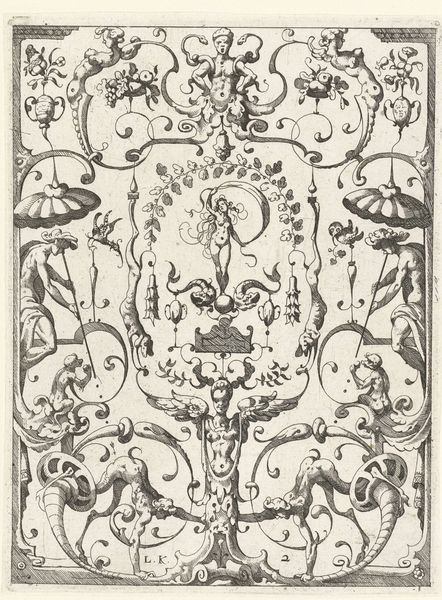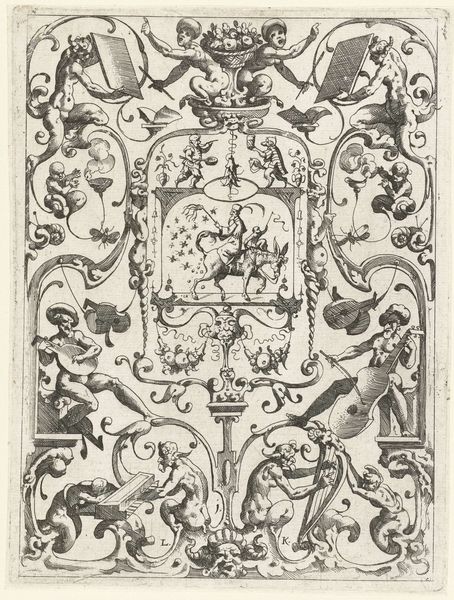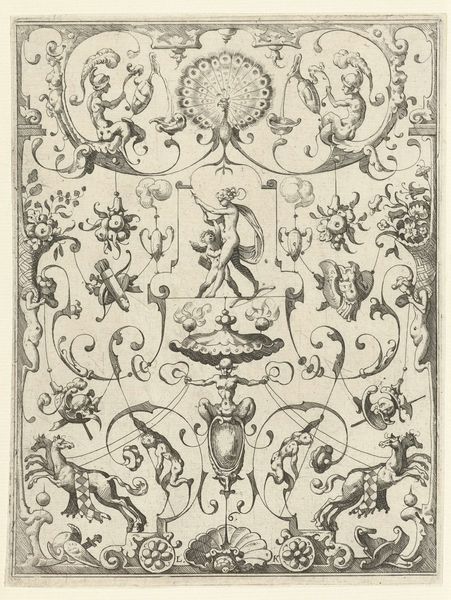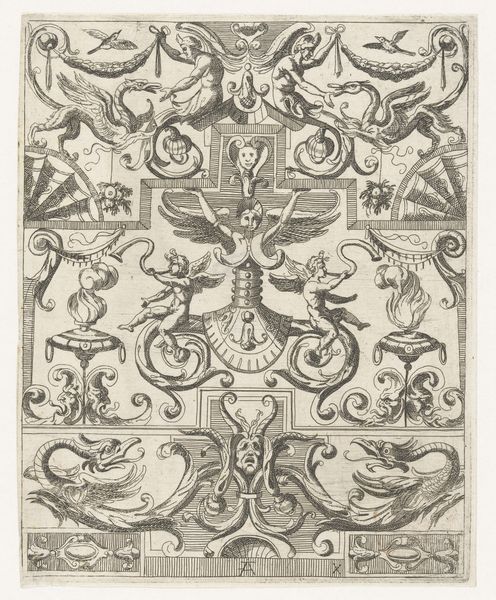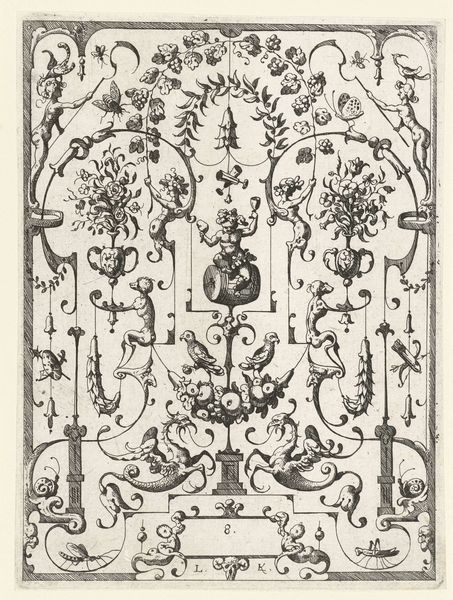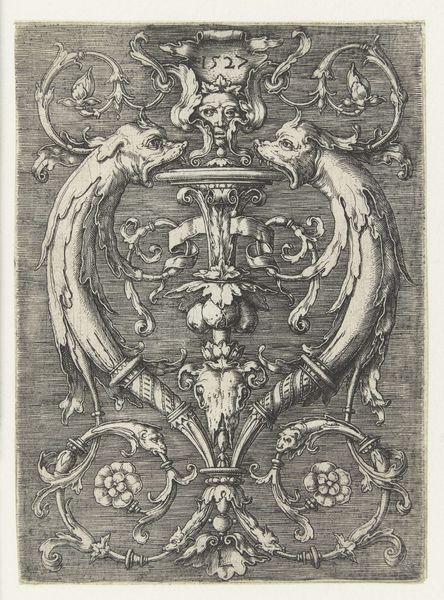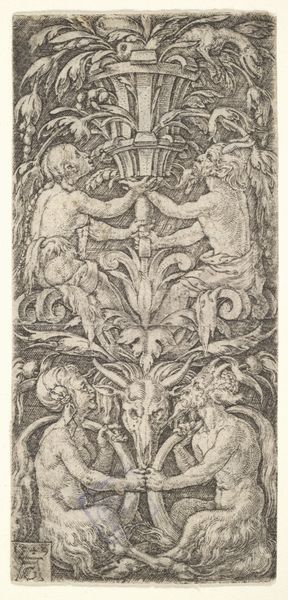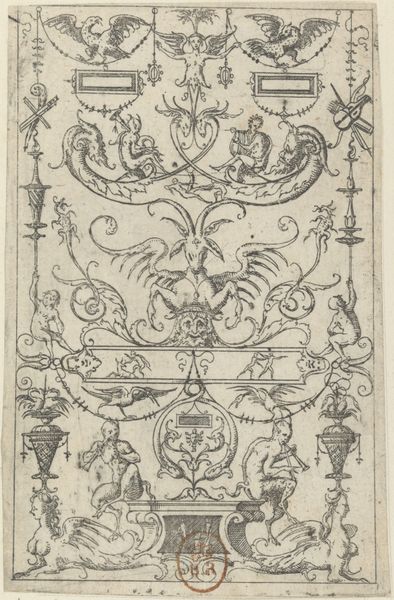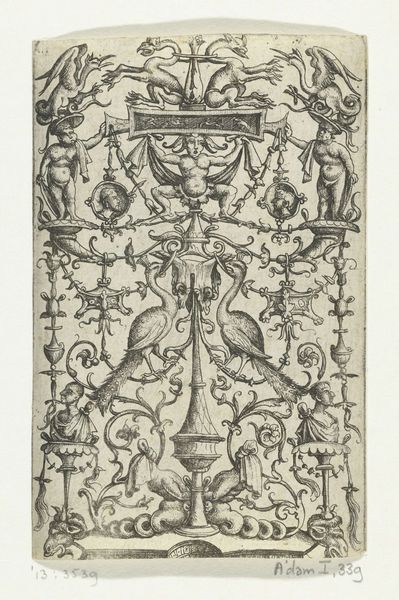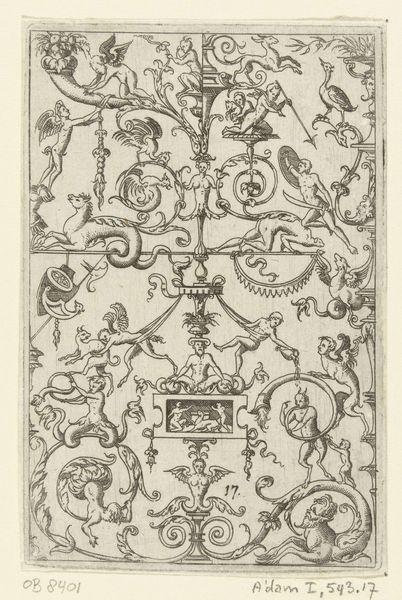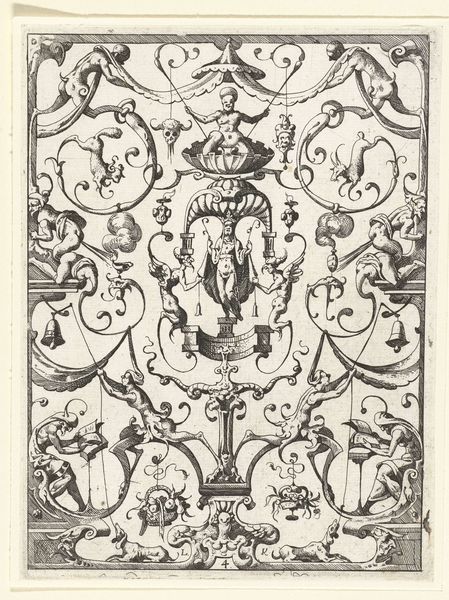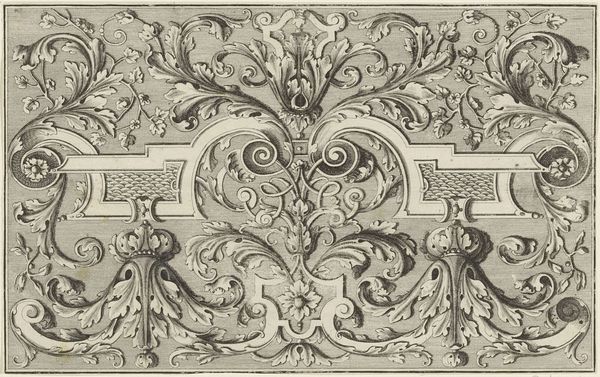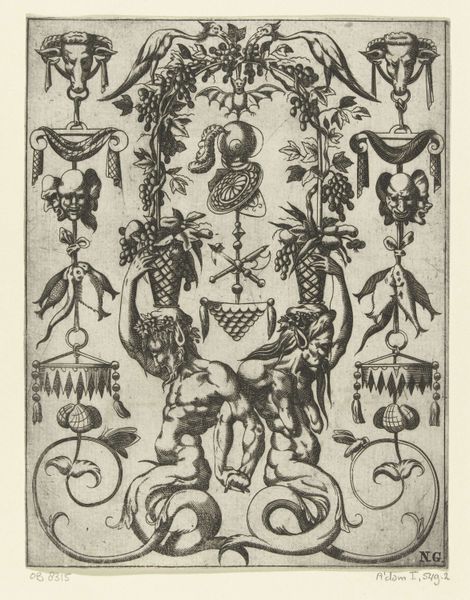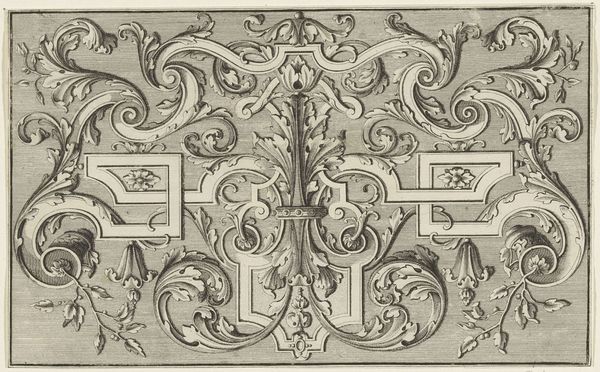
drawing, ink, engraving
#
drawing
#
allegory
#
pen drawing
#
pen illustration
#
figuration
#
ink line art
#
11_renaissance
#
ink
#
geometric
#
pen-ink sketch
#
pen work
#
northern-renaissance
#
engraving
Dimensions: height 189 mm, width 139 mm
Copyright: Rijks Museum: Open Domain
Lucas Kilian created this grotesque ornament print sometime between 1600 and 1637. The etching showcases a wildly imaginative decorative scheme. This print hails from the late Northern Renaissance, a time when the concept of "grotesque" ornamentation was in vogue across Europe. Popularized during the Renaissance through the rediscovery of ancient Roman art, these designs filled surfaces with hybrid creatures and fantastical plant forms. But its revival also reveals something about the societies that embraced them. These playful yet disturbing images broke from the idealized forms of classical art, suggesting a world beyond rational order. They also reflected a society grappling with newfound global awareness, as explorers returned with strange specimens from distant lands. Ultimately, the meaning of a work like this rests on understanding the social conditions that gave rise to its creation. Examining period pattern books, architectural treatises, and even scientific illustrations can further illuminate the cultural context of Kilian's inventive design.
Comments
No comments
Be the first to comment and join the conversation on the ultimate creative platform.
